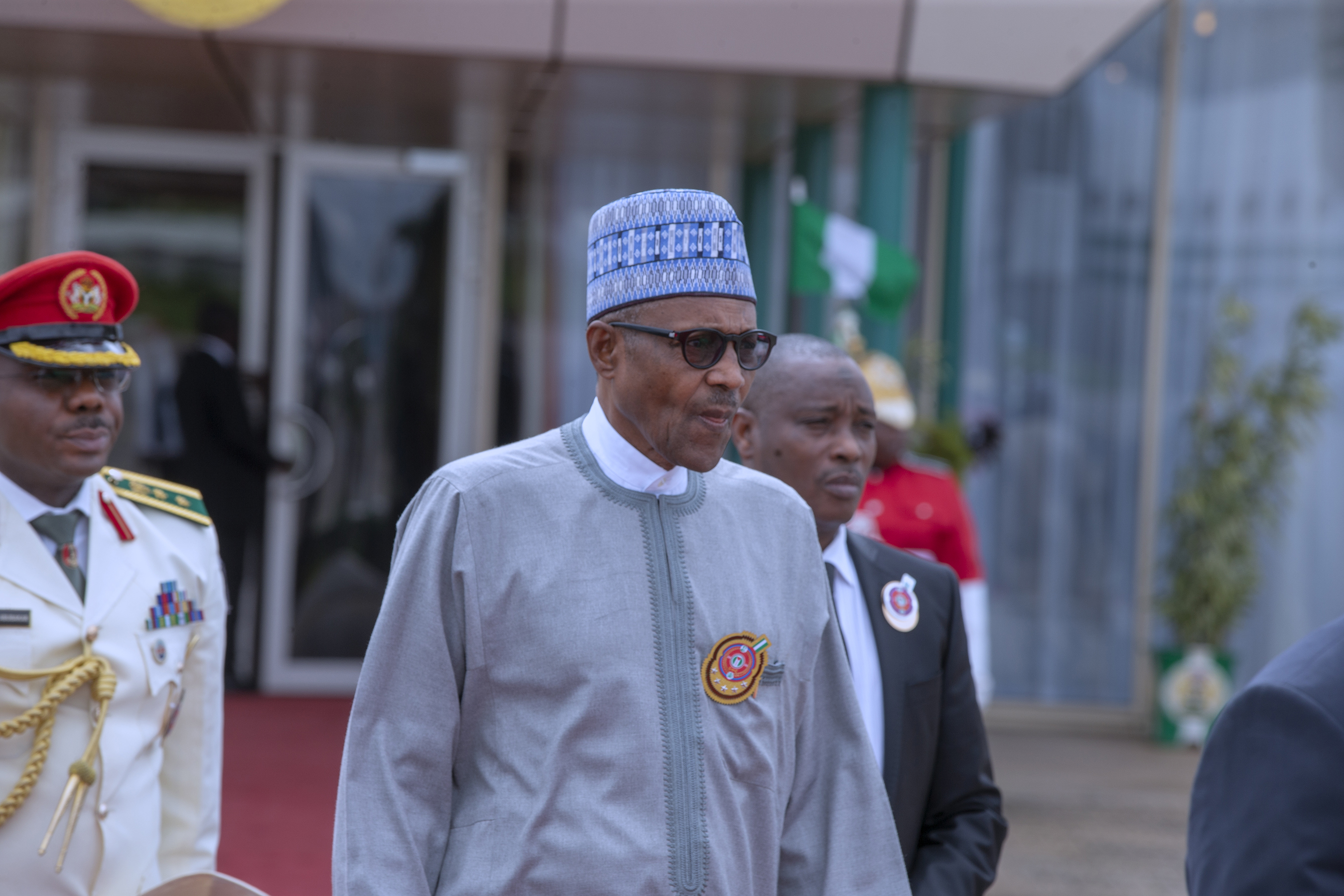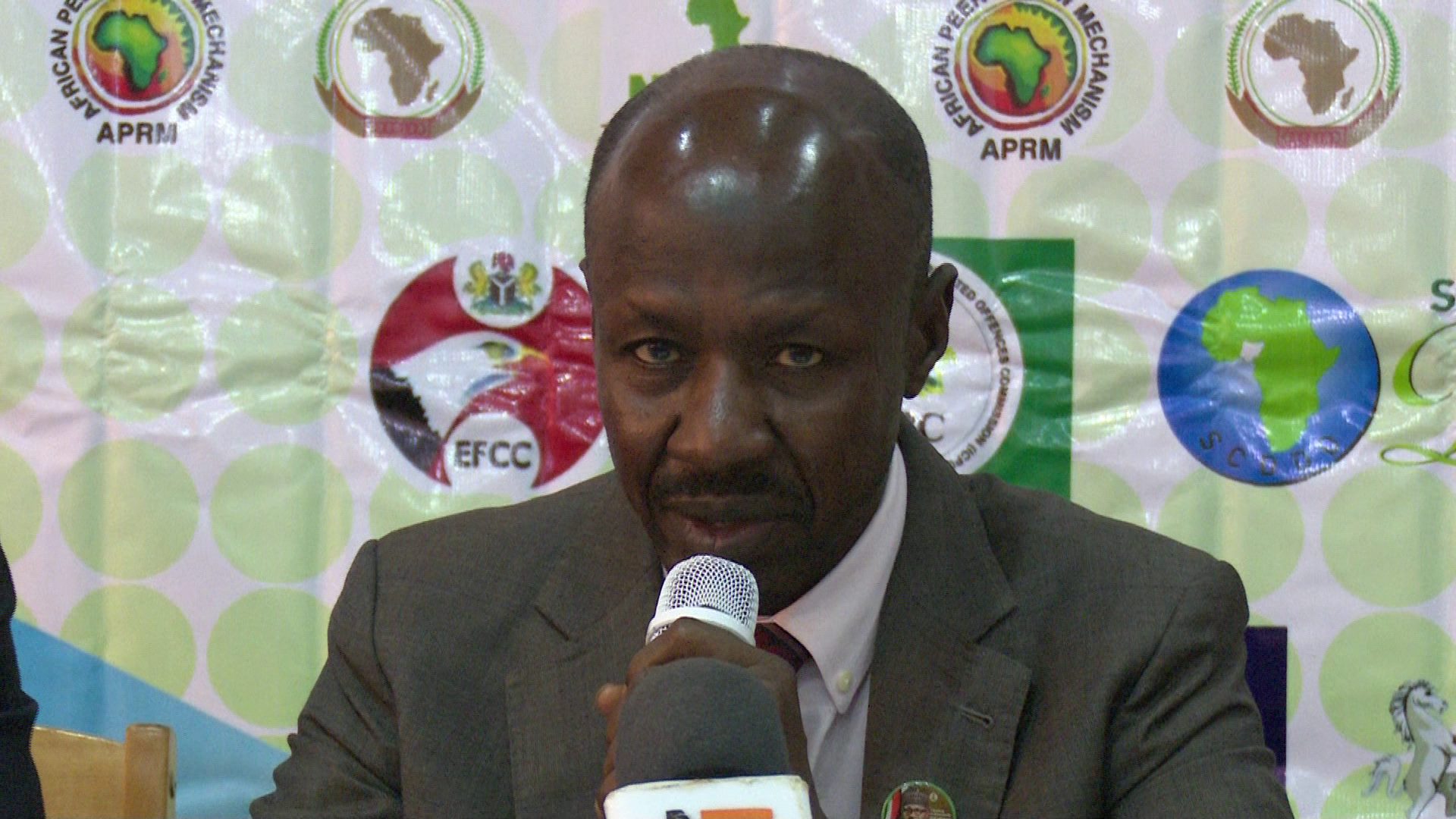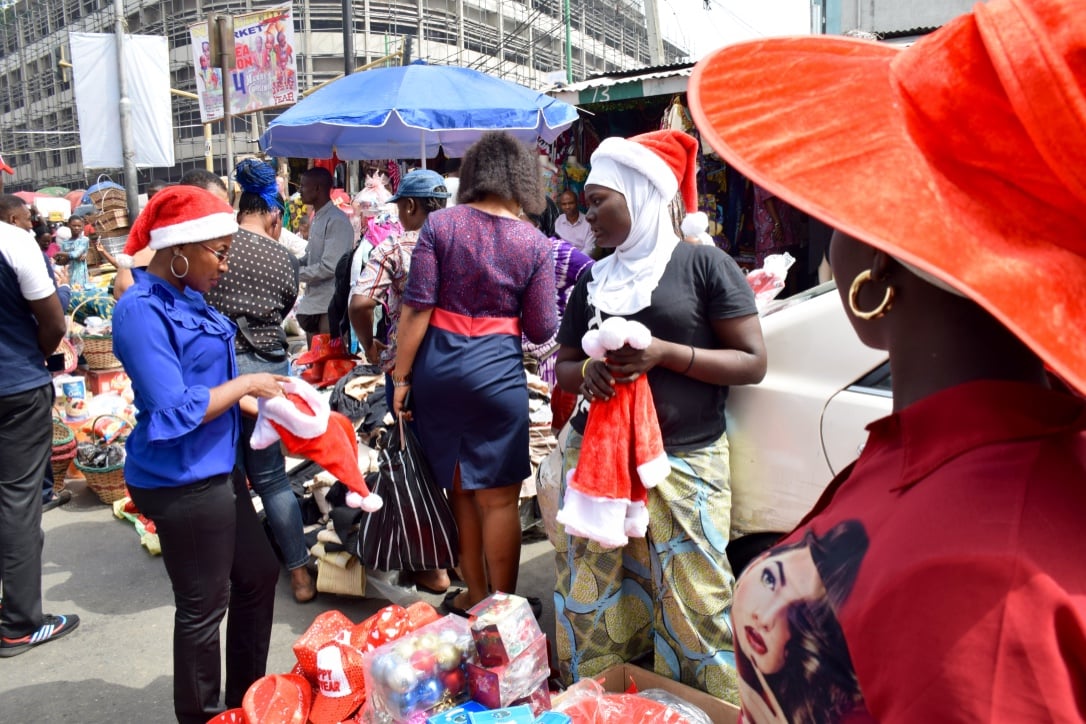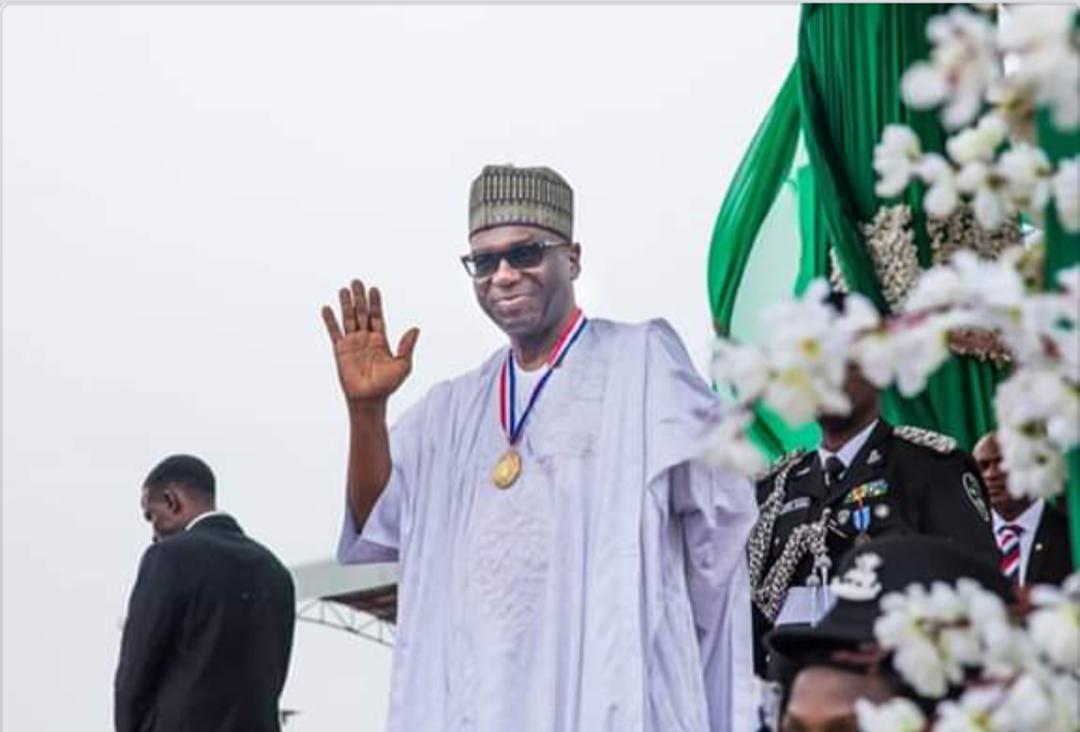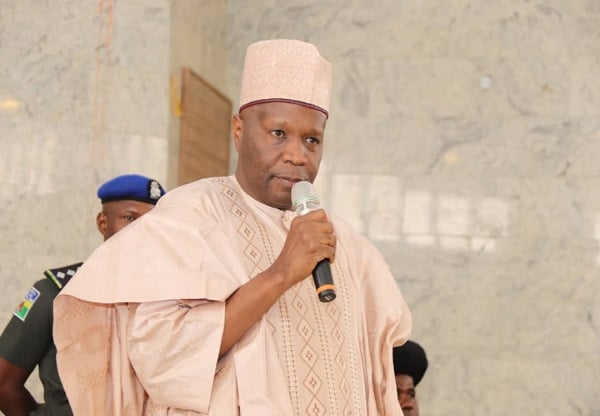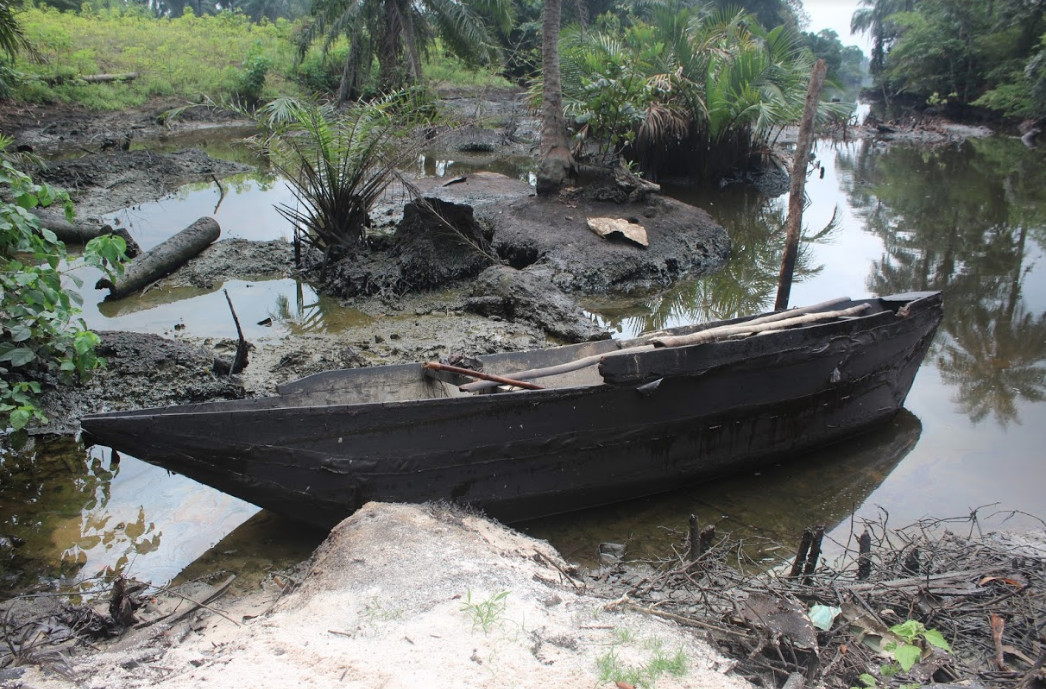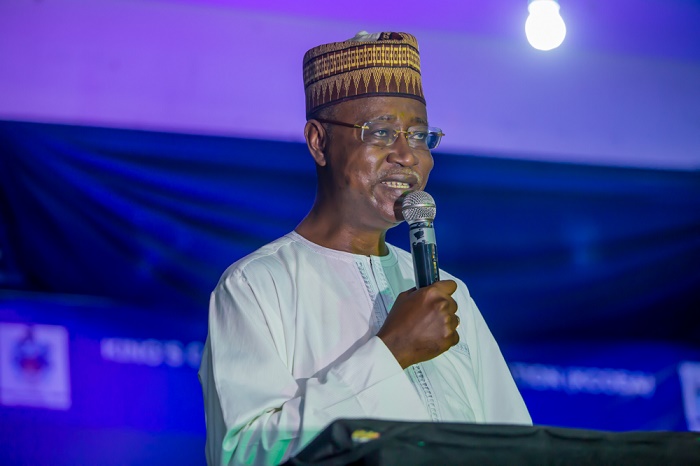PRESIDENT BUHARI DEPARTS ABUJA FOR SAUDI ON INVESTMENT MEETING 2A&B. President Muhammadu Buhari departs Abuja on an official trip to attend Economic Forum of the Future Initiative (FII) in Riyadh, Saudi Arabia. PHOTO; SUNDAY AGHAEZE. OCT 28 2019.
BY DATAPHYTE
A recent DATAPHYTE occasional paper revealed that budgetary provision to some of the top five most critical sector’s of Nigeria’s economy accounted for only 17 percent of the initial 2020 budget. While these five key sectors (Agriculture, education, health, infrastructure [power, works and housing], and security) compete for less than a fifth of the total budget size, allocation to debt servicing was over 25 percent of the total budget size for the same year.
In the last five years, budgetary allocations to these key sectors average at 18.5 percent of the total budget. Except for 2018 where the allocation to these sectors exceeded a fourth of the total budget size, these sectors have not enjoyed as much as 20 percent of the annual budget share since 2016.
Comparatively, budgetary provision for debt servicing averaged at 24.02 percent between 2016 and 2020. Except for 2018 when only 19.73 percent of the budget was earmarked for debt servicing and 2016 that had 24.25 budget share for the same, the budget share for debt servicing has persistently occupied over a fourth of the total budget size since 2016.
Advertisement
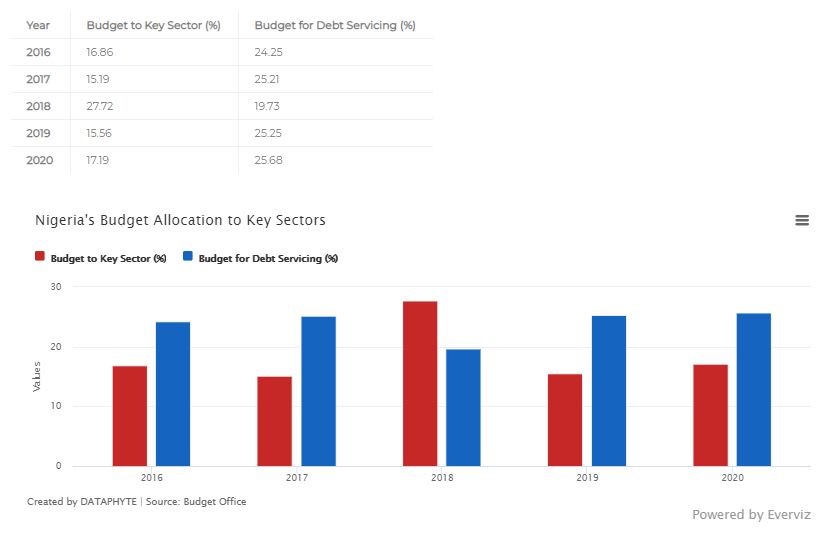
But this background appears to be elusive of the reality that Nigeria’s debt-to-gross Domestic Product (GDP) ratio is not so critical and the huge investment in debt servicing may be mismatched. Not too long ago, the International Monetary Fund revealed that despite Nigeria’s rising debt level, its debt-to-GDP ratio, which stands at about 28 percent, is still below the average in Africa.
UNIMPRESSIVE DEVELOPMENT INDICATORS
Advertisement
On the other hand, Nigeria’s Human Development Index (HDI) measures considerably low. Also, the country’s performance by Quality of Life (QoL) measurement is staggering. The 2018 Nigeria Demographic and Health Survey report, revealed that as much as 42 percent of Nigeria’s rural population lacked access to safe drinking water. In urban areas, about 26 percent of the population lacked access to an improved source of drinking water. Also, about 44 percent Nigerian households did not use improved sanitation facilities. Electricity reach to Nigerian households was only about 59 percent. As much as 69 percent and 17 percent of rural and urban households respectively lacked access to electricity.
In addition to these, 36 percent of females and 27 percent of males in Nigeria have no education. The net school attendance ratio (NAR) was 61 percent at the primary level and 49 percent at the secondary level. Other HDI and QoL measurements do not indicate a much better outlook for the country. With 95.9 million Nigerians living in extreme poverty and the country’s unemployment rate of 33.5 percent, Nigeria has a gloomy outlook in its overall development performance.
THE ROLE OF THE NIGERIAN LEGISLATIVE ARM
Despite this gloomy outlook, Nigeria invests less in its critical sectors. This raises questions on the country’s budget process and its commitment to the course of development. Moreover, this low investment calls to questions the budget oversight role of the Nigerian legislature. This also generates a question on the items the National Assembly looks out for when ratifying the budget. It all appears the National Assembly has failed in delivering the best of life to the citizens.
Advertisement
Nevertheless, beyond the ‘failure’ is the urgent necessity of repositioning Nigeria’s revenue within citizen’s real needs. Already, the coronavirus pandemic continues to expose the failures of leadership in Nigeria as well as some of the limitations of Nigeria’s current operational framework. Yet, the National Assembly has said little in response to the crisis
WHAT HAS TO BE DONE
Amidst the current global crises that have continued to show Nigeria many of its deepest sores is a calm appeal for the country to retrace its steps and redefine its realities. For instance, the recent oil market fluctuations have resulted in a more common consensus on the need for economic diversification. Similarly, the current pandemic has improved the government’s perception of the crises in its health sector.
To make the most of the time, Nigeria must make a deliberate effort to redefine its realities. This should involve prioritizing citizen’s critical needs. Budgetary provision for infrastructure, education, health, security, and the employment generating sectors should be increased.
Advertisement
In addition, the legislative arm of government should ensure diligence in the process of budget approval to guarantee maximum satisfaction of citizen’s critical needs. International conventions such as the Abuja Declaration of 2001 that recommends a 15 per cent budgetary allocation to the health sector, as well as UNESCO’s Education For All recommendation, should also be adopted in the budget process within practicable limits.
Advertisement
Views expressed by contributors are strictly personal and not of TheCable.
Add a comment
